Unlocking New Avenues of Efficiency: Harnessing the Power of Tax Deductions
Introduction:
In a world that increasingly values energy efficiency and sustainability, every opportunity to make a positive impact counts. Thankfully, a new avenue has emerged, offering businesses and individuals an enticing incentive to embrace efficiency: tax deductions. In this article, we delve into the realm of tax benefits, exploring how they can open doors to enhanced efficiency, cost savings, and a greener future. Join us as we navigate through this captivating terrain, revealing the untapped potential that awaits those who seize the opportunity to maximize efficiency while minimizing their tax burden.
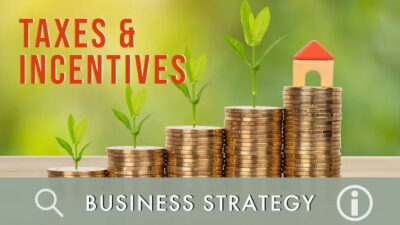
Tax deduction offers new opportunities for efficiency
1. Tax Deductions: Energizing Your Bottom Line
The introduction of tax deductions for energy-efficient measures has transformed the landscape of business and individual finances. By implementing energy-saving technologies and practices, organizations can not only reduce their energy consumption but also claim substantial deductions on their taxes. This symbiotic relationship between efficiency and financial benefits empowers businesses to make proactive decisions that drive sustainability while bolstering their bottom line. It’s a win-win situation that fosters a more economically and environmentally responsible approach.
2. Capital Investment: Accelerating Efficiency Upgrades
One of the key advantages of tax deductions is the ability to accelerate efficiency upgrades through capital investments. By leveraging tax benefits, businesses can recoup a significant portion of their investment in energy-efficient equipment, systems, and infrastructure. This enables organizations to expedite their transition to greener technologies, which often come with higher upfront costs but yield long-term benefits in terms of energy savings and reduced operational expenses. With tax deductions acting as a catalyst, organizations can embark on a transformative journey toward enhanced efficiency without enduring financial strain.
3. Encouraging Innovation: Paving the Way for Energy-Efficient Solutions
Tax deductions not only stimulate energy efficiency but also ignite innovation. By incentivizing businesses and individuals to adopt and develop energy-efficient technologies, governments nurture an environment ripe for advancements in sustainability. The promise of financial rewards spurs research and development efforts, propelling the creation of groundbreaking solutions that address energy challenges across various industries. This virtuous cycle of innovation and efficiency drives progress, offering a brighter and more sustainable future for generations to come.
4. Environmental Stewardship: Reducing Carbon Footprints
The correlation between energy efficiency and reduced carbon footprints cannot be overstated. By capitalizing on tax deductions, organizations can make significant strides in minimizing their environmental impact. Energy-efficient measures, from upgrading lighting systems to optimizing HVAC systems, not only curb energy consumption but also lower greenhouse gas emissions. Through tax incentives, businesses are encouraged to adopt environmentally conscious practices, forging a path towards a more sustainable world while enjoying the associated financial benefits.
5. Empowering Individuals: A Personal Journey Towards Efficiency
Tax deductions for energy efficiency extend beyond the corporate realm. Individuals are also presented with opportunities to embrace sustainable practices and reap the rewards. Homeowners can leverage tax benefits to make energy-efficient upgrades, such as installing solar panels, upgrading insulation, or opting for energy-saving appliances. By embracing these measures, individuals can lower their energy bills, increase the value of their homes, and contribute to a greener future on a personal level. Tax deductions empower individuals to take charge of their environmental impact while enjoying financial advantages.
Conclusion:
As the world rallies towards a more sustainable future, tax deductions emerge as a powerful tool for driving efficiency and environmental stewardship. By capitalizing on these incentives, businesses and individuals can unlock new opportunities to embrace energy-saving technologies, accelerate upgrades, stimulate innovation, and reduce their carbon footprints. The synergy between financial benefits and sustainability amplifies the impact of these tax deductions, inspiring a collective commitment to a greener tomorrow. Let us embark on this transformative journey, harnessing the power of tax deductions to shape a more efficient and sustainable world for ourselves and future generations.


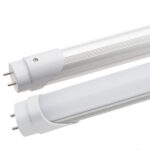 LED Tube Light
LED Tube Light LED Panel Light
LED Panel Light LED Down Light
LED Down Light LED Corn Bulb
LED Corn Bulb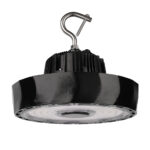 LED Highbay Light
LED Highbay Light LED Linear Strip Light
LED Linear Strip Light LED Exit Sign&Emergency Light
LED Exit Sign&Emergency Light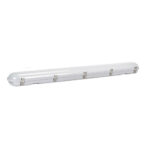 LED Vapor Tight Fixture
LED Vapor Tight Fixture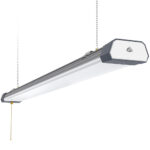 LED Shop Light
LED Shop Light LED Track Light
LED Track Light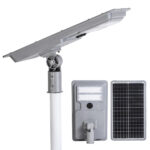 LED Solar Light
LED Solar Light LED Street Light
LED Street Light LED Work Light
LED Work Light LED Bollard Light
LED Bollard Light LED Canopy Light
LED Canopy Light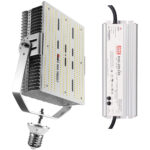 LED Retrofit Kit
LED Retrofit Kit LED Post Top Light
LED Post Top Light LED Flood Light
LED Flood Light LED Shoebox Area Light
LED Shoebox Area Light LED Wallpack Light
LED Wallpack Light LED Dusk to Dawn Barn Light
LED Dusk to Dawn Barn Light LED Explosion Proof Light
LED Explosion Proof Light LED Fishing Light
LED Fishing Light LED Stadium Light
LED Stadium Light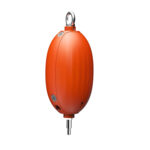 Emergency Backup Battery
Emergency Backup Battery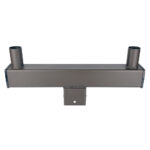 Pole Mounting Bracket
Pole Mounting Bracket Dimmer Switch
Dimmer Switch Photocell Sensor
Photocell Sensor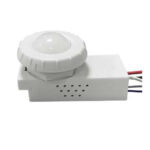 Motion Sensor
Motion Sensor Light Pole
Light Pole Multi-strand Copper Wire
Multi-strand Copper Wire Waterproof Joint
Waterproof Joint Surge Protective Device
Surge Protective Device LED Driver
LED Driver Flexible Conduit
Flexible Conduit LED T8 Emergency Tube Light
LED T8 Emergency Tube Light LED E26/E39 Retrofit Bulb
LED E26/E39 Retrofit Bulb